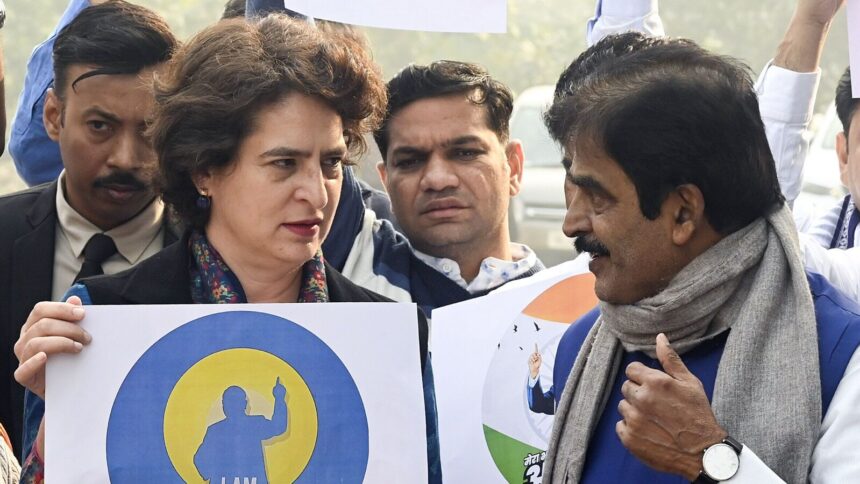Understanding the Historic CWC Session of Congress: A Tribute to Mahatma Gandhi
Date: December 26, 2024 | Source: Politics News Updates
In an era marked by political turbulence and rapid change, the Congress party of India is capitalizing on a significant historical milestone—the centenary of Mahatma Gandhi’s presidency at the All India Congress Committee (AICC) in 1924. Today, an extended meeting of the Congress Working Committee (CWC) is set to commence in Belagavi, Karnataka, under the theme "Unity, Justice, and Socio-Economic Equity," echoing Gandhi’s enduring vision for India.
Historical Context
Mahatma Gandhi presided over the Congress in 1924, a period when the Indian freedom struggle was gaining momentum against British colonial rule. His leadership style emphasized non-violence, communal harmony, and collective decision-making, which became the bedrock of the Indian Nationalist Movement. This centenary celebration is not just a ceremonial tribute; rather, it aims to reignite discussion around Gandhi’s principles and how they can be applied to today’s complex political landscape.
Key Objectives of the CWC Session
During this historic session, Congress leaders are expected to address several critical aspects:
-
Commemorating Gandhi’s Legacy: The meeting aims to reflect on Gandhi’s vision of a united and equitable India, discussing how the party can reintegrate these ideals into its current strategies and policies.
-
Strategic Planning: As political dynamics shift nationally and globally, the Congress party seeks to formulate strategies that align with Gandhi’s philosophy while addressing contemporary issues such as economic disparities, social justice, and communal harmony.
-
Engagement with Grassroots Movements: Gandhi’s approach was inherently grassroots-oriented. Today’s CWC is likely to delve into ways to strengthen connections with local communities and engage with ongoing socio-economic movements across the country.
- Policy Formulation: The session will touch on legislative reforms that resonate with the objectives of social equity and justice, considering current policy challenges in areas like education, healthcare, and economic development.
Current Political Climate
The backdrop of this CWC session is characterized by a rising trend of political polarization in India. With the general elections approaching, Congress aims to leverage this historic moment to reinforce its identity as a party that upholds democratic values and advocates for the marginalized.
As Congress navigates through this pivotal juncture, the outcome of this session could have significant implications not only for the party’s internal dynamics but also for its position in the broader political arena.
Looking Forward
In conclusion, the CWC session in Belagavi represents a monumental opportunity for the Congress party to reconnect with its roots while charting a path for the future. As they deliberate on the lessons from Gandhi’s presidency, the discussions will likely resonate with citizens who yearn for an inclusive political discourse, drawing lessons from the past to shape a more equitable society for the future.
Stay tuned as we provide timely updates and analysis from the ongoing session, exploring how Congress intends to embody and implement Gandhian principles in contemporary politics and governance.










